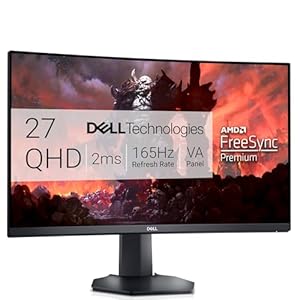If a “magic mushroom” edible ever took you on a psychedelic journey, you may be in for a shock. There’s a excessive probability that what you ate didn’t have any psilocybin—the chemical compound that offers the fungi their “magic.”
In a paper printed September 11 in JAMA Network Open, researchers reported that an evaluation of 12 magic mushroom gummies and sweets bought in Portland discovered no hint of psilocybin. As a substitute, the edibles contained undisclosed substances, together with caffeine, hashish extract, and artificial psychedelics that haven’t undergone regulatory testing.
“We discovered no proof of mushroom compounds of any form coming from any species,” Richard van Breemen, examine co-author and a pharmaceutical sciences skilled at Oregon State College, instructed Scientific American.
This unchecked mislabeling could also be a product of the joy round psilocybin’s potential use in treating a variety of psychological well being circumstances, van Breemen added in a university statement. However the analysis hasn’t superior sufficient for specialists to verify that’s really the case.
“Any new drug entity requires years of improvement to judge human security and efficacy,” he defined. “Untimely publicity to those compounds poses vital public well being dangers as a result of unknown pharmacology and toxicity.”
Mushrooms in the US
Psilocybin in magic mushroom species causes visible hallucinations when consumed in enough doses. It’s labeled as a Schedule I drug, which means that it “has a excessive potential for abuse, no presently accepted medical use in therapy in the US, and an absence of accepted security to be used below medical supervision,” in response to the Drug Enforcement Administration.
A number of states have decriminalized psilocybin, with efforts to legalize the drug advancing throughout the nation. A smaller quantity, Colorado, New Mexico, and Oregon—the place the researchers bought the edibles for analysis—permit assisted grownup use of the drug below strict circumstances. Nevertheless, authorized channels are fairly costly, with a latest study reporting the value vary from $750 to $1,200.
“Lots of people are very interested by these substances,” Mason Marks, a authorized skilled on psychedelics at Florida State College who was not concerned within the examine, instructed Scientific American. “And if you happen to’re in a state, like Oregon, that doesn’t decriminalize them, folks may go to those outlets and purchase these merchandise which might be both blatantly unlawful or sort of on this grey space.”
Excessive for the flawed causes
Such low-cost, accessible edibles had been what van Breemen and his colleagues bought and analyzed for the brand new examine. First, the staff despatched the samples to a state-licensed facility that certifies drug high quality for authorized psilocybin facilities in Oregon. Surprisingly, the assessments revealed that the edibles contained no psilocybin.
Again on the lab, the researchers tried to pinpoint what, then, was in these so-called magic mushroom edibles. By using some analytical chemistry, they discovered that the edibles contained many surprising substances, together with compounds like tetrahydrocannabinol (THC), the primary psychoactive ingredient in hashish.
The staff did establish psilocin, a naturally occurring compound in psychedelic mushrooms, in two gummies. But when the psilocin had really come from mushrooms, the researchers would have discovered different associated compounds—which they didn’t. That strongly suggests the psilocin was lab-made, they mentioned.
That wasn’t all. A number of the manufacturers additionally had an unlisted addition of “syndelics,” or artificial psychedelics that mimic pure, psychoactive compounds. Their results on human well being haven’t been correctly studied, van Breemen added—which makes their hidden presence in these simply accessible edibles ever extra alarming.
“Advances in analytical chemistry are wanted to detect new syndelics and different adulterants in client merchandise,” van Breemen mentioned. The following steps, he added, shall be for science “to show misbranding, to assist regulation enforcement and regulatory companies, and to help poison management facilities and hospitals as they encounter overdoses attributable to unknown compounds.”
Trending Merchandise

H602 Gaming ATX PC Case, Mid-Tower ...

Dell Inspiron 15 3520 15.6″ F...

Wi-fi Keyboard and Mouse Combo R...

Wi-fi Keyboard and Mouse Combo, Lov...

Lenovo V14 Gen 3 Enterprise Laptop ...

NETGEAR Nighthawk Professional Gami...

Logitech MK235 Wi-fi Keyboard and M...

Lenovo Latest On a regular basis 15...

Dell S2722DGM Curved Gaming Monitor...






